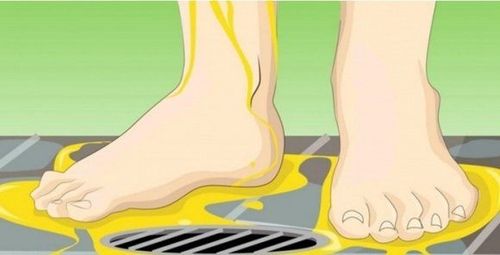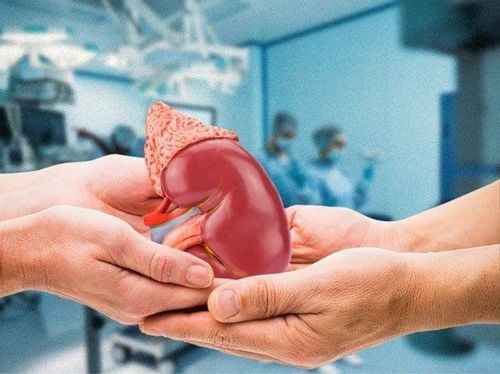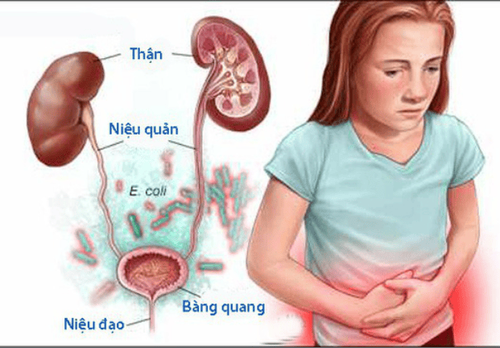This is an automatically translated article.
The article is professionally consulted by Master, Doctor Vo Thien Ngon - Department of General Surgery - Vinmec Da Nang International General Hospital
Neurogenic bladder is a condition in which bladder function is lost due to damage to the nervous system. If not detected and treated promptly, the disease can lead to kidney failure, even death.
1. What is neurogenic bladder?
1.1 Understanding the functioning of the bladder The bladder is a hollow, spherical organ whose main function is to store and expel urine. The normal urinary cycle of the bladder is storage and expulsion. The bladder stores urine under a low pressure because the bladder wall is elastic and the bladder muscles can relax under low pressure. At the same time, the bladder also has sphincter muscles to prevent the risk of urine leakage. When the bladder excretes urine, the sphincter must be relaxed after bladder contraction. And any abnormality in the urinary cycle leads to bladder dysfunction.1.2 What is neurogenic bladder? Neurogenic cystitis is a disease that causes loss of function of the bladder due to damage to part of the nervous system. The disease causes the bladder to be underactive, unable to contract and completely expel urine, or conversely, the bladder is overactive, contracting frequently, unable to coordinate with the bladder muscles. .
2. Causes of neurogenic bladder disease
Brain damage: Cerebrovascular accident, brain tumor, Parkinson's disease, Shy-Drager syndrome can all cause neurogenic bladder disease; Spinal cord injury: Patients with spinal cord injury, spinal cord injury, and multiple sclerosis are prone to neurogenic bladder; Peripheral nerve damage: Due to diabetes, neurosyphilis, herniated disc, herpes zoster, pelvic surgery, ... can lose bladder muscle reflexes.3. Symptoms of neurogenic bladder disease

4. Neurogenic bladder complications
Patients with neurogenic bladder have urine retention for a long time, which easily leads to urinary tract infections, nephritis, pyelonephritis, urinary stones, urine reflux from the bladder to the kidneys. As a result, patients have continuous urinary tract infections, irreversible kidney scarring, leading to kidney failure, increasing the risk of death. Meanwhile, this disease is not indicated for a kidney transplant.5. Treatment of neurogenic bladder disease
The goal of neurogenic bladder syndrome treatment is to prevent kidney damage and minimize complications. The treatment of the disease needs to adhere to 3 principles: ensuring kidney function, ensuring the patient's quality of life, and the patient being able to live independently in adulthood.Treatments for neurogenic bladder include:
Psychotherapy: Overactive bladder can be reduced through a combination of willpower and exercise. Specifically, patients will be instructed to keep a diary of excretion, about the time and amount of water taken, and the number of times you urinate. Thanks to that, the patient can determine the right time to urinate. In addition, patients are also instructed to do Kegel exercises to strengthen pelvic and Valsalva muscle movements to support effective treatment of the disease; Electrostimulation therapy: Place electrodes near nerves, causing stimulation like electrical impulses conducted by undamaged nerves for the bladder to function properly; Medication: Use drugs to reduce muscle spasms and tremors, drugs that cause contractions, or drugs to treat overactive bladder to improve, relieve symptoms of discomfort, urinary incontinence,. ..; Clean intermittent catheterization: A method of completely emptying the bladder. When performing the technique, a clean catheter is placed through the urethra and the bladder and then withdrawn, repeated several times a day (about 3-4 hours apart). The advantage of this method is that it causes less complications, reduces urinary infections, limits bladder stones, controls urine well and helps improve quality of life for patients; Surgery: Catheters are placed to help the bladder clear urine better. A combination of the above treatments may be required, depending on the symptoms and extent of nerve damage, to help the patient recover early and reduce the risk of complications.

6. Preventive measures, early detection of neurogenic bladder
Neurogenic bladder is caused by a variety of factors, including both congenital and acquired causes. Therefore, to prevent this disease, it is necessary to be screened for birth defects that affect bladder function such as spina bifida, sacral aplasia, tumors in the spinal cord or pelvis.For patients with spinal cord injuries, central nervous system tumors, spinal surgery, stroke, heavy metal poisoning, syphilis, diabetes,... If you experience any of the above symptoms, you need to see a doctor for early diagnosis and treatment, and to prevent complications of kidney failure.
During the treatment of neurogenic bladder, patients need to absolutely follow the doctor's instructions to recover soon, reduce the risk of unpredictable complications.
Doctor Vo Thien Ngon has over 7 years of experience working as a urologist and surgeon at Hospitals: Hue Central Hospital, Hue University of Medicine and Pharmacy Hospital, Tam Tri Da Nang General Hospital .
Doctor Ngon with the ability to specialize in the field of examination and treatment of diseases of the Urology and Andrology system, Urology surgery, endoscopic urological surgery, Laparo urinary tract surgery, endoscopy Urinary. Currently, Dr. Vo Thien Ngon is a Urology - Orthopedic Surgery Doctor, Department of General Surgery, Vinmec Da Nang International Hospital
Please dial HOTLINE for more information or register for an appointment HERE. Download MyVinmec app to make appointments faster and to manage your bookings easily.














